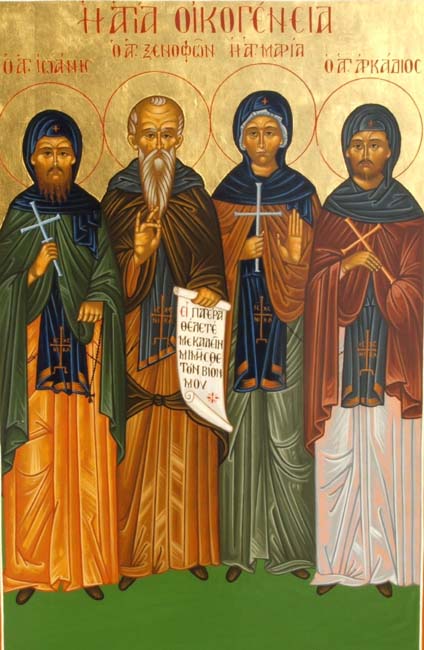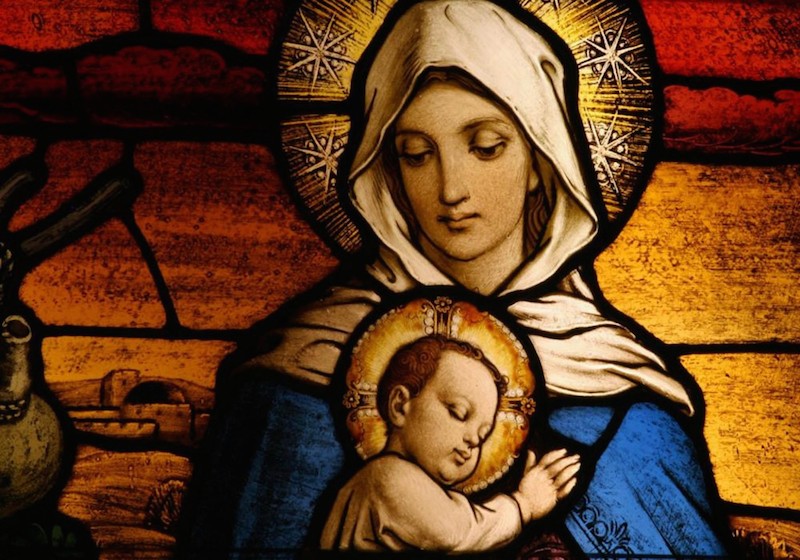Sunday School: 31-Jan-2015
Jan 26 – The Monk Xenophontes, his spouse Maria and their sons Arkadios and John
 The Monk Xenophontes, his spouse Maria and their sons Arkadios and John, were noted citizens of Constantinople and lived in the 5th Century. Despite riches and position, they distinguished themselves by their simplicity of soul and goodness of heart.
The Monk Xenophontes, his spouse Maria and their sons Arkadios and John, were noted citizens of Constantinople and lived in the 5th Century. Despite riches and position, they distinguished themselves by their simplicity of soul and goodness of heart.
Wishing to give their sons John and Arkadios a more complete education, they sent them off to the Phoenician city of Beirut. Through Divine Providence the ship on which both brothers sailed became ship-wrecked. The brothers were pitched by the waves onto shore at different places. Aggrieved at being separated, the brothers dedicated themselves to God and accepted monasticism.
For a long time the parents received no news about their children and presumed them to have perished. Xenophontes, however, now already quite old, maintained firm hope in the Lord and consoled his wife Maria, telling her not to sorrow but to believe that their children were watched over by the Lord. After several years the spouses made pilgrimage to the Holy places and at Jerusalem they met their sons, pursuing asceticsm at different monasteries. The joyful parents gave thanks to the Lord for providently re-uniting the whole family.
For the remainder of their lives, the monastics Xenophontes and Maria dedicated themselves to God and accepted monasticism. The Monks Arkadios and John, having taken leave of their parents, went out into the wilderness, where after long ascetic toil they were glorified by gifts of wonderworking and perspicacity. The monastic elders Xenophontes and Maria, having pursued asceticism in silence and strict fasting, also received of God the gift of wonderworking.

 A couple of months ago we had a guest post here at Restless Pilgrim from Tom Massoth. Well, today we have another guest post, this time from my long-time friend,
A couple of months ago we had a guest post here at Restless Pilgrim from Tom Massoth. Well, today we have another guest post, this time from my long-time friend, 
 One of my favourite things about having a blog is that, every now and then, I’ll get an
One of my favourite things about having a blog is that, every now and then, I’ll get an 

